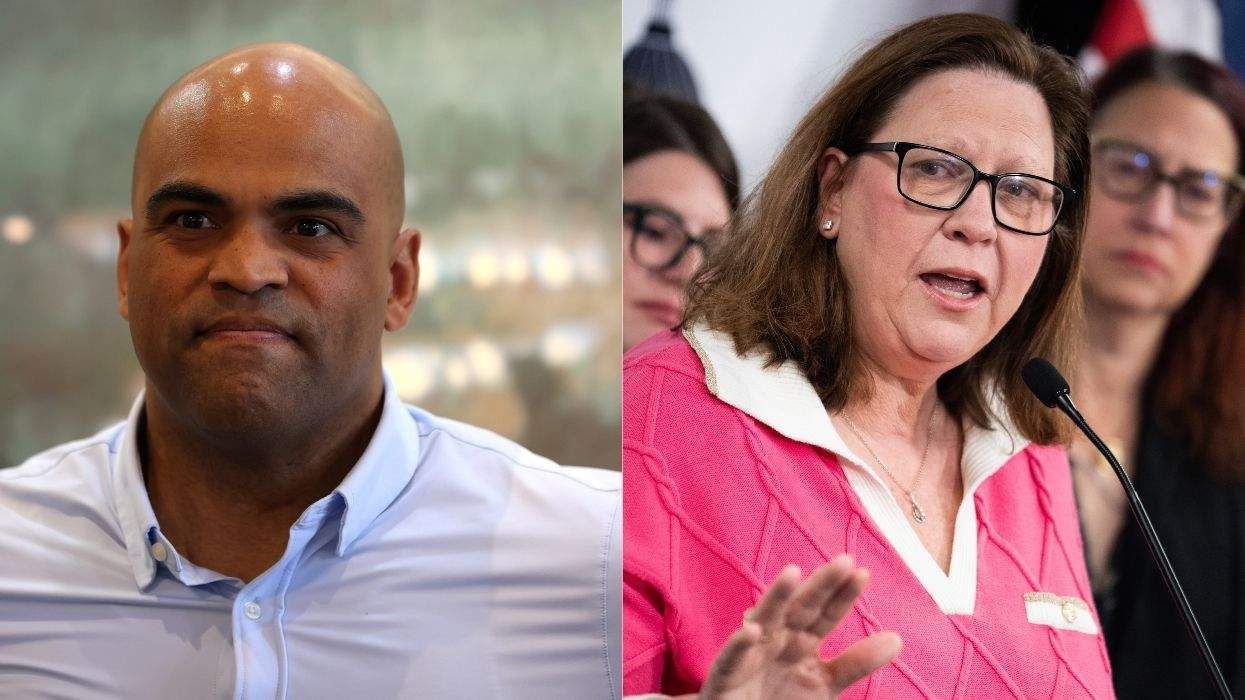The morning after their stunning January 19 loss in the Massachusetts U.S. Senate race, jilted Democrats felt the pull of two distinct forces as they scrambled to determine their next move. One impulse urged the party toward the center, while the other tugged it to the left. Whichever direction prevails, the road ahead for equality appears bumpy but not impossible to navigate--if the party in power can somehow articulate a clear path.
Democrats reeled when Scott Brown, a relatively unknown Republican state senator, defeated state attorney general Martha Coakley, a Democrat with statewide name recognition, in the special election for the seat held by the late Edward
Kennedy, a staunch gay ally.
"This is one of those situations that takes on significantly more importance than the seat itself," says Democratic strategist Chris Lehane. "Democrats in D.C. and across the country are extrapolating lessons from what happened. It has the potential to become the proverbial canary in the coal mine."
On the surface, if the gay agenda were that bird, it would appear to be gasping for breath in 2010. Experts predict that the White House and Congress are likely to avoid actions that could be perceived as too far left in advance of the November midterm election.
"In general, it's bad news for moving a broad progressive agenda, let alone the LGBT agenda," says Charles Franklin, professor of political science at the University of Wisconsin-Madison. "The most likely reaction is to move more toward the middle rather than accept the progressive critique that the Democrats were mistaken in trying too hard to please the center."
Look more closely, though, and attempts to interpret Brown's election as a referendum on social issues fall short. Brown, while opposed to marriage equality, owes his victory to independents, a bloc that polls favorably on at least one pressing gay rights issue, the repeal of "don't ask, don't tell."
"The fact about independents is they're not, as a group at least, terribly ideological one way or the other," Franklin says. "In that sense, I wouldn't write them off as a group that cannot be persuaded to support progressive legislation, provided it is presented in the right way."
That courtship could involve displays of bipartisan interest in ending the military ban and possibly in passing the Employment Non-Discrimination Act. Some say the loss of the Senate Democrats' filibuster-proof majority could bump those proposals into the limelight.
"It's somewhat paradoxical, but LGBT issues have not in this period been seen as highly partisan as health care, immigration, or cap and trade," says Richard Socarides, the former LGBT adviser to President Clinton. "Our core legislative issues, which are repeal of 'don't ask, don't tell' and ENDA, have been seen as much more bipartisan."
Still, the potential for a chilling effect in the wake of the Senate election in Massachusetts remains strong.
"The lesson the Democrats should take from this is they need to provide an overarching choice for where they want to take the country," Lehane says. "It would be a mistake to become cautious, but I think that will be the natural reaction of the national party in Washington, D.C."
What Can Brown Do For You















